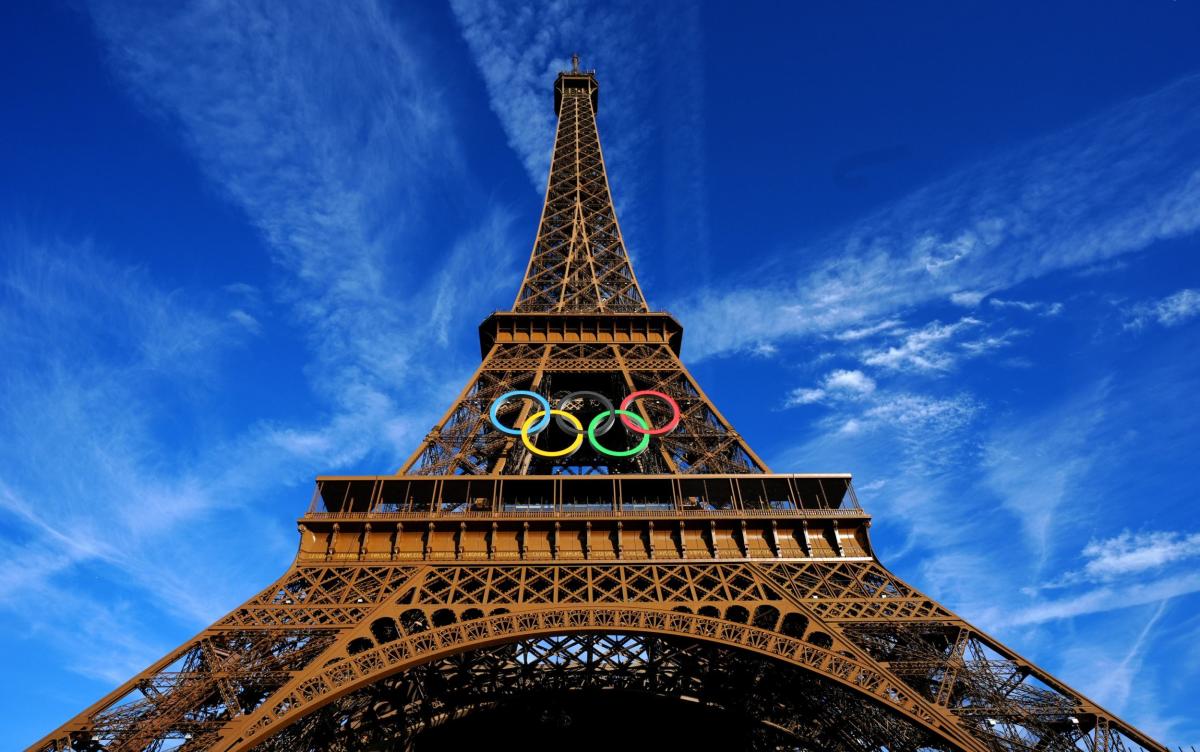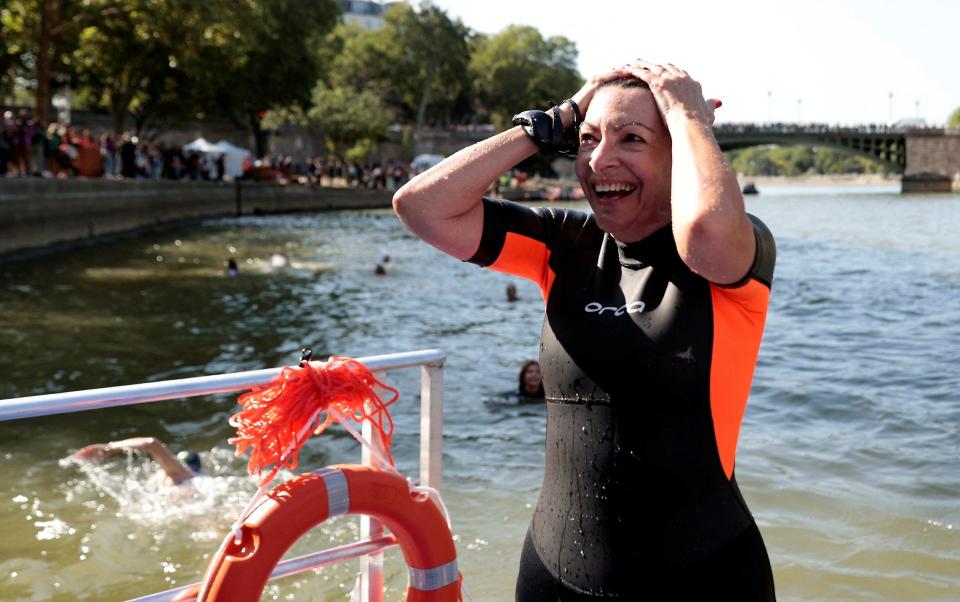


The Olympic rings adorning the Eiffel Tower for the Games will become a permanent fixture of France’s most famous monument, the mayor of Paris announced.
Anne Hidalgo said Paris had fallen in love with the Olympics and “I want the two to remain married”.
She announced the current rings will first be taken down as they are deemed too heavy, and will be replaced with lighter versions.
The city must also come up with a way to conceal the rings when the Eiffel Tower pays special tribute to causes that are not in line with the Olympic Committee’s strict policy on neutrality.
Referring to how “the French fell in love with Paris again” with the success of the Games, Ms Hidalgo said: “Paris will never be the same again.”
Early reaction suggested Parisians were cautious about the idea. Some expressed concern that the rings will weaken the structural integrity of the tower, while others joked that keeping the rings is akin to keeping Christmas decorations up year-round.
“So I loved the Games in Paris, but the rings shouldn’t stay on the Eiffel Tower. Firstly, because the Olympics don’t belong to Paris and secondly, the Eiffel Tower has its own aesthetic,” added an independent journalist working with the city of Nanterre north of Paris.

Ms Hidalgo, a socialist, made the announcements in an interview with the regional newspaper Sud-Ouest.
In the same interview, she also reiterated that the roads leading up to the north face of the Eiffel Tower, including Place de Varsovie and the Pont d’Iena, which had been closed to traffic during the Olympic Games, will likewise remain car-free after the Paralympic games.
The mayor had already pledged to pedestrianise the area earlier this year.
“There will be a cycle path,” Ms Hidalgo said. “We will also give back space to pedestrians, Place de Varsovie.”
The Paris mayor has been vocal about her desire to make the rings, as well as the cauldron and the statues of female figures from the opening ceremony, permanent fixtures of Paris’s cityscape.
“These three magnificent symbolic artistic objects deserve all our attention ,” she said in an interview with France Bleu Paris a few days after the start of the Games in July.
But the permanence of the cauldron, which included a hot air balloon that became one of the most popular attractions of the games, is not up to the city of Paris as it is located in the Jardin des Tuileries, which is state property.
While some have proposed moving the cauldron to other spots in the city, Ms Hidalgo said she’s put in a formal request to Emmanuel Macron, the French president, to keep the hot air balloon cauldron in the gardens.


“My opinion is that it must be kept in the same place because it is an object inseparable from the Paris Games,” she declared.
She’s also proposed that the cauldron, powered by 40 LED spotlights and 200 high-pressure misting nozzles that create the illusion of a flame, be retrofitted so that it can be raised with guests inside.
The statues of the 10 French women who appeared in the Seine river during the opening ceremony – including writer Simone de Beauvoir and women’s rights activist Simone Veil – could also be placed along rue de la Chapelle in the 18th arrondissement, a major avenue that leads to the suburb of Saint-Denis and the basilica of the Kings of France, she said.